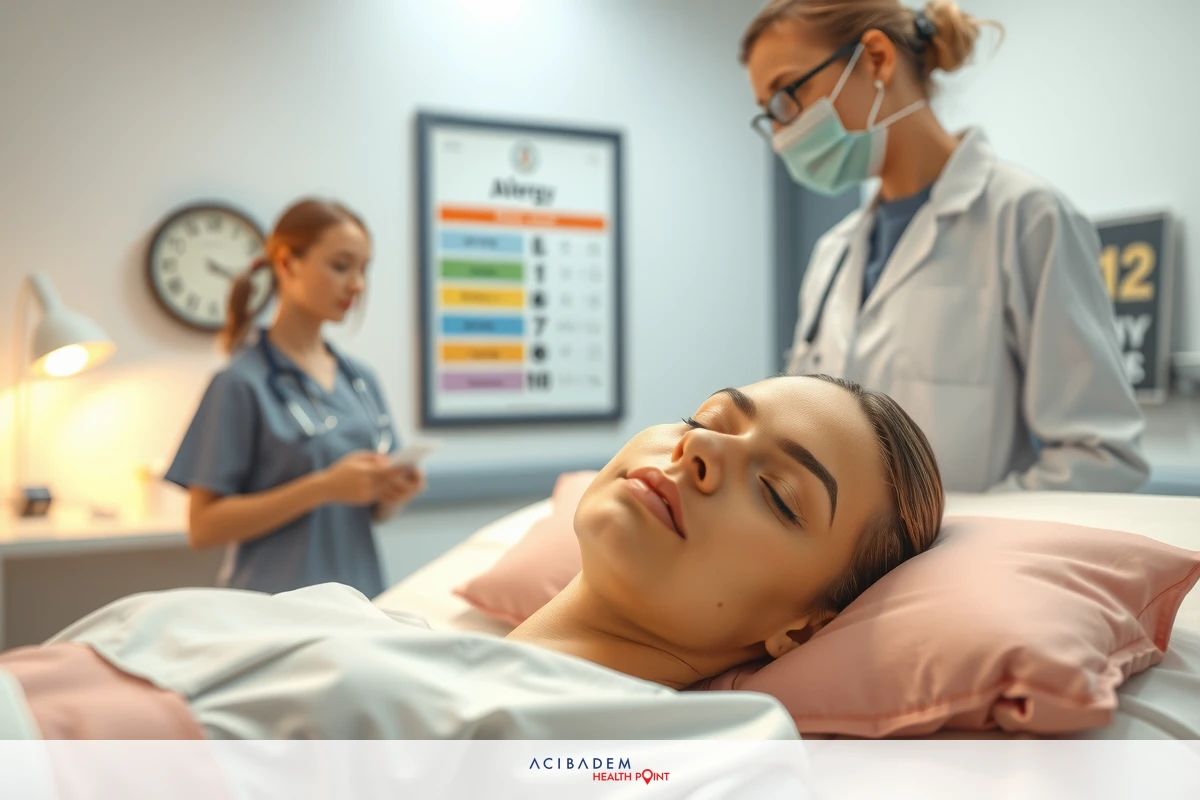Can I Take Allergy Medicine After Rhinoplasty?
Can I Take Allergy Medicine After Rhinoplasty? Rhinoplasty, is a prevalent cosmetic surgery aimed at altering the shape of the nose for either aesthetic or functional purposes. The post-operative recovery phase can bring about various challenges, one of which may involve effectively managing allergies while simultaneously healing from the surgery.
Navigating through post-rhinoplasty recovery requires careful consideration of many factors. The use of allergy medicine during this period might raise concerns about potential interactions with pain management medications or interference with the healing process. These complexities and consulting healthcare professionals are key steps towards ensuring a smooth and successful recovery journey.
What is Rhinoplasty?
Rhinoplasty, also known as nose surgery or a nose job, is a surgical procedure designed to alter the shape of the nose. This cosmetic procedure can be performed for aesthetic purposes or to correct functional issues such as breathing difficulties. When considering rhinoplasty, it’s important to understand all aspects of the procedure itself and the subsequent recovery process.
The operation often involves reshaping bone and cartilage within your nasal structure under general anesthesia. Following surgery, patients usually experience some bruising and swelling around their eyes and nose which diminishes in a couple of weeks. Post-operative care is crucial during this recovery phase; ensuring you follow your surgeon’s instructions diligently can make significant differences in healing speed and results.
What if allergies strike amid this recovery? Allergy sufferers may wonder about using allergy medicine following their rhinoplasty surgery – would it interfere with their medication or delay healing? The answer isn’t straightforward due to individual differences but generally speaking, certain types of allergy medications might indeed be taken post-rhinoplasty without causing complications. But remember: always consult with your healthcare provider before making any changes to your postoperative medication routine.
Post-Operative Medication
Post-operative medication plays a critical role in the recovery process following rhinoplasty. These prescribed medications assist with pain management, reduce inflammation and swelling, and deter infections that could complicate healing. The specific types of medicine required can vary significantly based on the individual’s health condition, surgical procedure specifics, and their body’s response to surgery.
Pain medication is often prescribed to ensure comfort during the initial stages of recovery. Non-prescription options like acetaminophen may also be recommended by your surgeon as part of your post-operative care routine. Anti-inflammatory drugs are another common component of post-rhinoplasty medication regimens; they help manage swelling which is an expected side effect after any surgical intervention.
What happens when allergies act up amidst this medicinal cocktail? Can allergy medicines safely coexist with these other medications? Generally speaking, most overthe-counter allergy medications should not interfere with your post-operative regimen or delay healing from rhinoplasty. However, it is always essential to consult with healthcare professionals before adding any new medicines into your recovery regime including ones for allergies – ensuring you avoid potential interactions and complications.
Taking Allergy Medicine After Rhinoplasty
A common question for patients recovering from rhinoplasty is whether they can safely take allergy medicine during their recovery period. This concern arises because many individuals rely on regular doses of antihistamines or other allergy medications to manage symptoms such as nasal congestion, sneezing, and itchiness. The last

thing anyone wants while healing from a nose surgery is an uncontrolled allergic reaction.
The good news is that most over-the-counter allergy medicines are generally safe to use after undergoing a rhinoplasty procedure. Antihistamines, which are commonly used for managing allergies, do not typically interfere with the prescribed postoperative medications nor hinder the healing process following surgery. However, this doesn’t mean you should start popping your usual allergy pills right after your operation without first consulting with your surgeon or healthcare provider.
While it’s crucial not to self-medicate without professional advice in any circumstances – post-surgical situations demand even more caution. Certain decongestants can lead to increased blood pressure and might be contraindicated if specific pain management drugs have been prescribed as part of your post-rhinoplasty care regimen due to potential interactions between these substances. Always discuss taking additional medication – including over-the-counter ones – with your physician during the recovery phase following any surgical intervention.
Frequently Asked Questions
Can I take my regular allergy medicine after having rhinoplasty?
Generally, most over-the-counter allergy medicines are safe to use during your recovery from a rhinoplasty procedure. However, it's always best to consult with your healthcare provider before taking any additional medication post-surgery.
Will using an antihistamine interfere with my post-operative medication regimen?
Antihistamines do not typically interact negatively with prescribed post- operative medications. Still, you should always discuss adding any new medication - including over-the-counter ones - into your routine with your physician or surgeon.
What if I have an allergic reaction while recovering from rhinoplasty surgery?
If you experience allergy symptoms such as sneezing or nasal congestion in the days following your surgery, reach out to your healthcare provider for advice. They may recommend that you continue using standard over-the-counter allergy medications or suggest alternative solutions.
Are there specific types of allergy medicine that are safer than others after undergoing nose surgery?
Most common forms of allergy medicine like antihistamines should be safe for use after a rhinoplasty procedure. However, certain decongestants could potentially increase blood pressure and may not be recommended depending on other medications being taken. Always consult with a medical professional about what is safest for you personally.











